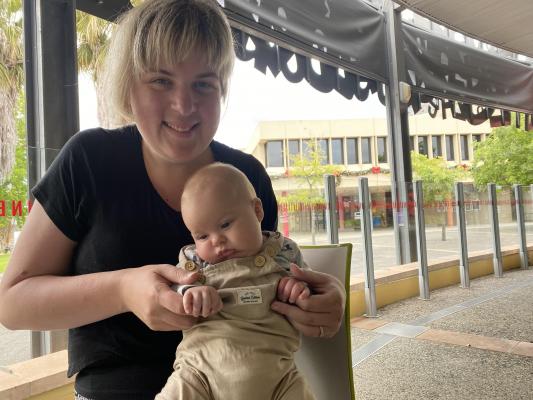
Charlotte Varcoe
THE financial pressure of in vitro fertilization (IVF) procedures will lessen for Limestone Coast families following a Federal Government decision.
Families needing testing services that can help prevent them passing serious genetic disorders onto the child with pre-implantation genetic testing now available on the Medicare rebate system.
The $95.5m incentive will allow those in need of the service to be reimbursed through Medicare.
The sophisticated scientific technique is used to test embryos for either a specific known single gene condition or chromosome variation.
This then allows chromosomally healthy embryos or those unaffected by a specific genetic disorder to be selected for implantation during an IVF cycle.
Mount Gambier resident Rebekah Scott spoke about the incentive following a recently successful IVF cycle due to polycystic ovary syndrome.
Ms Scott and her husband decided to pursue an IVF cycle approximately 18-months ago, resulting in a healthy baby boy named Teddy.
She said despite the success, she remained aware that there were women who continue to struggle with fertility issues despite IVF availability.
“Trying to fall pregnant and taking all these tests and waiting for appointments and all the unknowns is the hardest thing because you don’t know if it has been successful and you know it is not guaranteed,” Ms Scott said.
“There are a lot of stories out there as well about people being unsuccessful which just adds to the anxiety and stress of the situation.”
Despite the ongoing emotional and financial struggles associated with IVF treatment, Ms Scott said the pre-implantation procedure being added to the Medicare scheme was a positive step forward.
“IVF procedures are such an expensive thing including medications and appointments so any help to ease that financial burden on couples to help gain healthy and successful babies is a positive step forward,” she said.
“It has got to be a step which will help a lot of people in the long run and make these tests more accessible for those needing them as well.”
Ms Scott said herself and her husband paid approximately $10,000 for their IVF cycle and labelled herself as lucky to have been successful on the first round.
“I did get some rebates back but we then also had to continue paying for ongoing storage of other embryos we had from the procedure,” she said.
“It is not a cheap way of having a baby, but when people are successful it is worth it.
“There are so many people that need either IVF or other reproductive assistance so any kind of help is welcome especially if it keeps the cost down and makes the procedures more successful.”
Those needing assistance for IVF or fertility are able to contact FertilitySA on 8100 2900.







